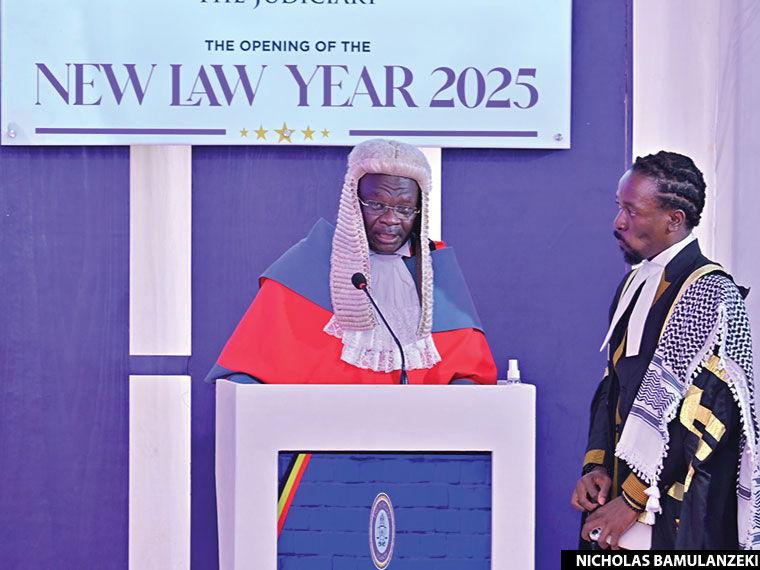Chief Justice Owiny-Dollo Bars ULS President from New Law Year Event, Stands by Decision
Uganda’s Chief Justice, Alfonse Owiny-Dollo, has firmly defended his decision to bar Uganda Law Society (ULS) President Isaac Ssemakadde from speaking at the New Law Year event, stating that he has "no apologies" for the move.
The Chief Justice cited Ssemakadde’s previous remarks, which he described as "insulting" and "dehumanizing" to the judiciary, as the reason behind the exclusion. Owiny-Dollo made it clear that the judiciary would not tolerate such conduct and that “it cannot be business as usual” when the head of the ULS has made disparaging remarks about the institution.
The decision has sparked debate within Uganda’s legal circles, with some viewing it as a necessary step to uphold the dignity of the judiciary, while others argue it sets a worrying precedent for freedom of expression within the legal profession.
Ssemakadde, a vocal lawyer known for his bold criticism of the judiciary and government institutions, has often used strong language in his advocacy. His exclusion from the prestigious event marks a rare instance of open confrontation between the judiciary and the leadership of the legal profession.

In picture, ULS President protesting why he was excluded from the Program
The New Law Year event is an annual gathering that brings together key players in Uganda’s legal fraternity, including judges, lawyers, and government officials, to reflect on the state of the legal system and set the tone for the year ahead. Traditionally, the ULS president is among the key speakers, making Ssemakadde’s exclusion particularly significant.
Legal analysts warn that this incident could deepen tensions between the judiciary and sections of the legal profession.
While some support the Chief Justice’s firm stance on judicial respect, others believe the move may discourage critical discourse within the legal fraternity.
Ssemakadde has yet to issue a formal response to his exclusion, but the development is likely to fuel ongoing debates about the balance between judicial authority and freedom of expression in Uganda’s legal and political landscape.
As the dust settles, one thing remains clear: the rift between the judiciary and some sections of the legal profession is far from over.
Join the Daily West Nile WhatsApp group now to never miss an update from us.Download Host Media Now from the Play Store to watch HostTV, listen to Host Radio